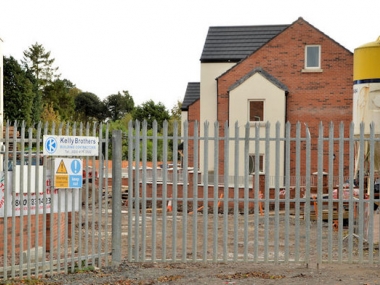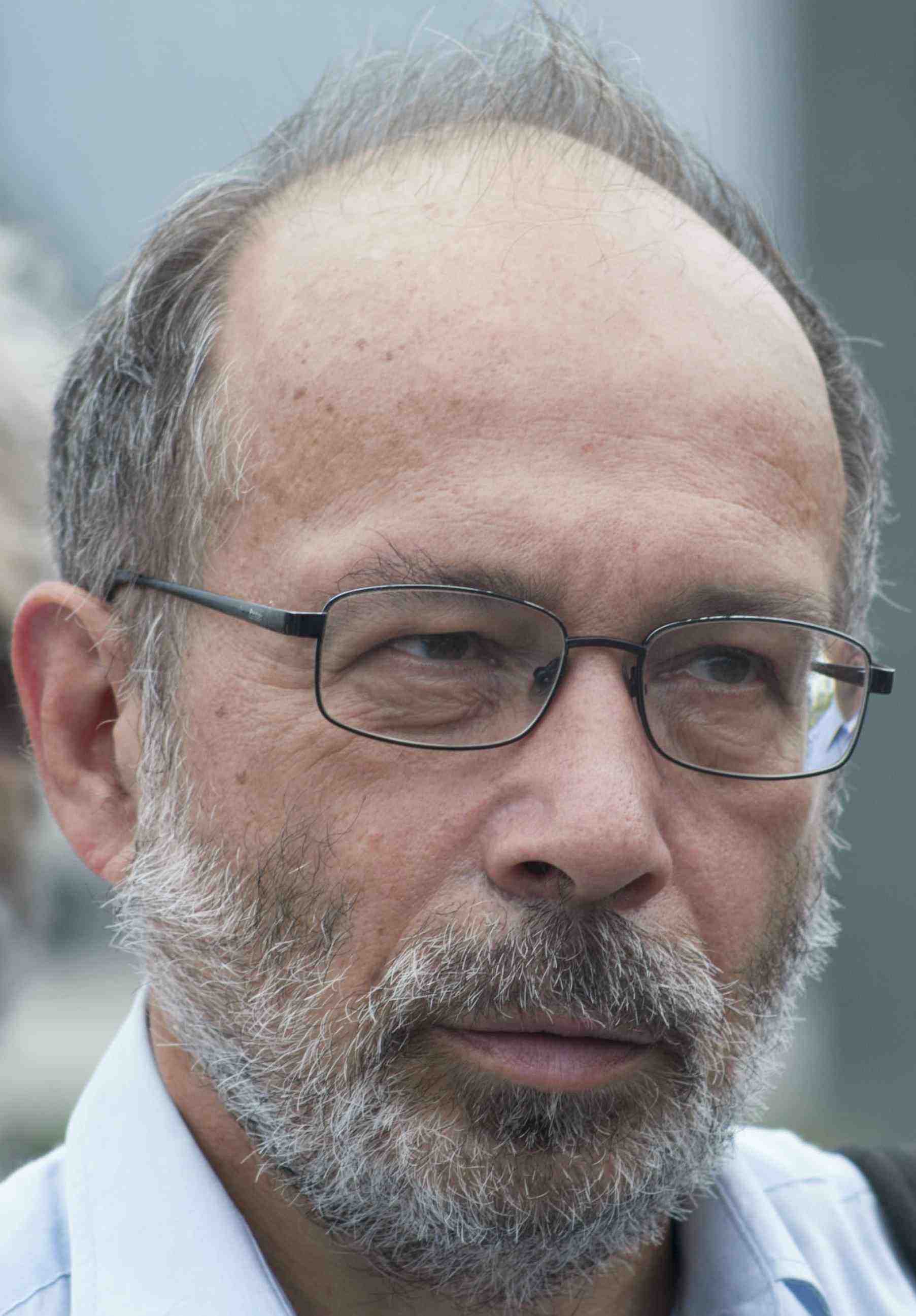The housing paradox: what can local municipalities do?
Edited on
17 July 2019The negative consequences of the financialisation of housing can be felt first and foremost on a local level, in the urban housing markets. Thus the crucial questions are: what are local municipalities doing? Or to what extent can the growing problem of affordable housing be handled on a local level?

The differences between European cities are even larger than between countries – depending on political colours, cities within the same country might have totally different answers to the same challenges.
Here is a short overview of positive examples, i.e. cases where cities achieved success to mitigate or prevent the problems on the housing market – either through subtracting land out of the property market (i.e. limiting speculation) or through creating additional resources to make housing affordable. The sources of the information are international meetings and the very informative book of Patti-Polyák (2017).
Community-led housing models
According to Patti-Polyák a diversity of community-led housing (CLH) models have emerged across Europe including the Danish co-housing model focuses on shared spaces and environmental sustainability and the traditional cooperative housing model in Germany, Switzerland and France - which are undergoing a renewal with a focus on democratic governance and anti-speculation. Meanwhile, the Anglophone Community Land Trust model that aims to pull land out of the property market, is progressively gaining a foothold in continental Europe.

Community-Led Housing projects are costly and require investments exceeding the financial capacity of most inhabitants, particularly low-income households. To be viable and to leverage sufficient economic resources, community-driven housing initiatives need to organise a wide range of actors around their project and attract external funders. For example, the organisations Stiftung Trias and Edith Maryon Stiftung are acquiring land for non-profit purposes and providing long-term leaseholds to civic actors with the aim of enabling non-speculative housing developments. Community-Led Housing projects usually start by aggregating their economic capacities and financial means in the form of savings. Resources that were put in common are then used to leverage further public and private funding. In fact, the success and adaptability of Community-Led Housing models depend largely on the capacity of inhabitants to negotiate external funding at favourable conditions (at low interest rates, for instance) and to advocate for public support mechanisms, such as public guarantees or enabling public policies.
Since 2015 Barcelona (ES) introduced new models for affordable housing. One form of this is based on giving public land to cooperatives. Javier Buron Cuadrado, Housing Manager of Barcelona city council described this model in the Smart City Expo World Congress in Barcelona (November 2018), starting from the point that in Spain cities do not have power in housing policy, as this is regulated on regional level. Even so, Barcelona has set up the Right to Housing Plan 2016-2025 with the aim to create more than 18 000 affordable housing units, mainly on rental basis. New ideas are used, such as building temporary places and using rooftops. Barcelona also tries to negotiate with the settlements of the metropolitan area, where at least 75 000 affordable units are missing. All types of financial and technological ideas are discussed, especially how to build faster and cheaper. Barcelona is open to all solutions existing in other cities, coming from residents and the academia, to find answers to the affordable housing challenge.
The Community Land Trust (Patti-Polyák) is an interesting Anglophone model. This is an organisational form in which communities come together to address housing issues. Perceiving a need, a group starts to look for land. This can be in the form of raising capital from an ethical lender for buying land, asking for municipally owned land or through private negotiations with a farmer. The next step is building new houses or redeveloping existing houses into affordable homes. When the community achieves ownership of the land, they can make housing on it affordable. They can sell homes or properties, at about half the market rate. It can be a shared ownership model, or be a socially rented model.
 In the book, the case of the Granby Four street Community Land Trust is described in details. In a poor area of Liverpool (UK), a former residents association was re-created as Community Land Trust in 2011. They met up with a few partners and began to draw plans together for an urban regeneration process with very small incremental stages. In 2012, the association won a small urban garden competition, the result of which got noticed by the Steinbeck Studio social investment organisation. They saw what was happening in the neighbourhood, liked the idea of citizens being active in the community and offered a £ 500 000 loan. From that moment, Liverpool City Council also began to take notice and started discussions with the Community Land Trust, finally deciding to transfer 10 properties over to the Granby 4 Streets Community Land Trust. The Community Land Trust holds the land in trust, separating its value from the building on it, and it fixes the price the buildings can be sold for later. Any value increase is locked in by the Community Land Trust for community benefit, so the profit motive has been cut out.
In the book, the case of the Granby Four street Community Land Trust is described in details. In a poor area of Liverpool (UK), a former residents association was re-created as Community Land Trust in 2011. They met up with a few partners and began to draw plans together for an urban regeneration process with very small incremental stages. In 2012, the association won a small urban garden competition, the result of which got noticed by the Steinbeck Studio social investment organisation. They saw what was happening in the neighbourhood, liked the idea of citizens being active in the community and offered a £ 500 000 loan. From that moment, Liverpool City Council also began to take notice and started discussions with the Community Land Trust, finally deciding to transfer 10 properties over to the Granby 4 Streets Community Land Trust. The Community Land Trust holds the land in trust, separating its value from the building on it, and it fixes the price the buildings can be sold for later. Any value increase is locked in by the Community Land Trust for community benefit, so the profit motive has been cut out.
Using public land in new way
Berlin (DE) is well known as a city of pioneering attempts to change the usual market oriented models. During a long period of experimentation with temporary use projects, and initiatives mobilising protests against large-scale development projects like the Media Spree, the idea emerged to develop economically sound and secure models of tenancy, based on long-term rental contracts or cooperative ownership arrangements. An example for that is the StadtNeuDenken initiative with a new concept for privatisation (Patti-Polyák). The basic idea is to change the privatisation mechanisms from the highest bid to fixed prices and the best concept.
This idea was soon adopted by the municipality of Paris (FR) and shortly after the victory of Anne Hidalgo in 2014 their own top-down version of concept-based privatisation was launched in a series of competitions. Besides defining affordable housing goals, Hidalgo and deputy mayor Missika launched the urban development competition: Reinventing Paris. 23 municipally owned sites were selected in Paris – some in quite deprived and remote areas to sell public land, linking sales price to its future use. In an attempt to foster innovation in real estate and extending the scope of urban commons only multi-disciplinary teams could win, and the final users had to be included from the beginning. The competition was very successful and since then two new rounds were launched, on a similar basis.
Municipal regulation against housing speculation
Vienna (AT) is known worldwide for sustainable and inclusive urban development, of which housing policy is one of the corner-stones. The city is probably the biggest public landlord in the world with 220 000 public rental units. A particular challenge recently was the quick growth of the city, having in the last years 12-20 000 people moving yearly to Vienna. This means a need for building at least an additional 6 000 housing units yearly. There is, thus, a growing interest for land, suitable for new housing.
Vienna recognised quickly, that in the case of open competition the interest of international investors would lead to the increase of prices of the scarce land reserves for housing. One of the leading principles of urban development in Vienna is the inclusivity of the city, avoiding changes in the housing market that would push certain strata out. In order to avoid price increases as consequence of speculative capital investments, making housing in the longer term unaffordable, Vienna reacted quickly. A new regulation is about to be introduced, limiting access of investors to real estate that is potentially suitable for affordable housing. The regulation aims to maximize the purchase price for the land, introducing a rule so flats cannot be sold for 40 years to maximise the rent of new units. Moreover, another new decision requires that half (later 2/3) of any new housing projects should qualify for the affordable housing model, determined by the city. These are important initiatives by the public sector to regulate the market, to avoid price increases - as a consequence of financialisation of housing.

Need for cross-country agreement on the social understanding of housing
For the moment, the efforts to handle the negative consequences of the financialisation of housing lead only to limited results on a national level and the local attempts face even more challenges.
For example, Sorcha Edwards from Housing Europe reported on a Dublin (IE) case, where a local group was bidding for an empty standing building to turn it into social housing, but their position was hopeless as their competitor was the largest US pension fund.
It is clear that international cooperation and joint efforts are needed to strengthen the social aspect of housing, as opposed to the market commodity understanding of it.
In the Vienna Housing for All conference a range of ideas were raised on how such an international effort could be initiated.
EU or national government intervention
Barbara Steenbergen, International Union of Tenants, emphasized that mergers between real estate funds are going on in order to avoid national taxation. The EU and national governments should find out ways to keep housing affordable: real estate investors should be limited or stopped at all to buy up the existing affordable housing stock.
A European housing forum
Kieran McCarthy, Member of the EU Committee of the Regions, Councillor of the City of Cork (IE), suggested organizing a European Housing Forum. In the Committee of the Regions housing, it should be taken more seriously, it cannot remain one of the last priorities.
A set rate of income share, a basic right and the end of VAT
Evelyn Regner, Member of the European Parliament (S&D), pointed to the European Semester as one of the possibilities, where housing could be included without making huge changes in the basic documents of the EU. She suggested including the principle that people should not spend more than a given share of their incomes for housing costs. Housing should be acknowledged as a basic right. The EU should take steps to achieve housing-related expenses without or with little VAT, which would bring a real decrease of housing costs to normal people.
The European Semester
 Jörg Wojahn, Representative of the European Commission in Austria, also mentioned the importance of the European Semester, turning soft law into a harder tool. Already today large sums of EU money, some EUR 1,5 billion is invested into housing. Also, loans from EIB and some parts of the Juncker fund (for the energy efficiency in buildings), should be taken into account. However it is clear, that e.g. energy efficiency investments make housing more expensive, thus such investments have to be acknowledged as long term financial commitments, and should be made exempt from the deficit rules. The European elections are a good moment to vote for candidates who agree in the importance of urban and housing issues against the dominance of agriculture and other investment goals.
Jörg Wojahn, Representative of the European Commission in Austria, also mentioned the importance of the European Semester, turning soft law into a harder tool. Already today large sums of EU money, some EUR 1,5 billion is invested into housing. Also, loans from EIB and some parts of the Juncker fund (for the energy efficiency in buildings), should be taken into account. However it is clear, that e.g. energy efficiency investments make housing more expensive, thus such investments have to be acknowledged as long term financial commitments, and should be made exempt from the deficit rules. The European elections are a good moment to vote for candidates who agree in the importance of urban and housing issues against the dominance of agriculture and other investment goals.
EU and municipal responsibility
Lea Ortiz, deputy mayor Barcelona complained about dozens of evictions weekly in the city (against all efforts of the municipality), and about the fact that investors are buying up growing parts of the city. She also suggested turning to Europe, influencing the upcoming EP elections. The view that “housing is not responsibility of the EU” should be changed. Sustainable and just cities cannot be achieved without a growing public influence on the housing markets and the EU has a large responsibility to achieve that. The movement of cities - the emerging municipal cooperation - should push housing to become part of the discussions in Europe.
Banning private equity fund investments and airtime at the G20
Leilani Farha, UN Special Rapporteur on adequate housing suggested putting the financialisation of housing on the agenda of G20, as the finance ministers of this group are of crucial importance. After food security, housing should be on their agenda. Private equity funds should be banned from investing into residential housing just as investments into harmful environmental investments is already prohibited.
A basic human right
In her passionate speech at the Housing for All conference Leilani Farha emphasized that gold is a commodity, but housing not – it is a human right. Seizmic, paradigmatic shift is needed, as the present problems are not only market failures, but so is the lack of viewing housing as a human right. All levels of government have to show up and adopt comprehensive, human rights based housing policies. Housing must be based on laws protecting basic rights, and strategies must be based on the rights of people. She announced the establishment of a new movement: SHIFT, which already has 25 signatory cities, including Barcelona, Paris, Amsterdam (NL), Seoul (KR).
Housing is a human right which should not be sold to the highest bidder.
Progress in the EU on housing
 Compared to the situation a decade ago, there is some progress in the handling of housing in the European Union. Within the EU Governance (European Semester, Macroeconomic conditionality, Reform Support Instrument, Rule of Law) housing is not considered exclusively from a competition policy perspective, but also as a matter of the Rule of Law in which basic human rights are slowly gaining some importance. There is a chance that fundamental rights will become one of the horizontal enabling conditions in the post-2020 Cohesion Policy regulation.
Compared to the situation a decade ago, there is some progress in the handling of housing in the European Union. Within the EU Governance (European Semester, Macroeconomic conditionality, Reform Support Instrument, Rule of Law) housing is not considered exclusively from a competition policy perspective, but also as a matter of the Rule of Law in which basic human rights are slowly gaining some importance. There is a chance that fundamental rights will become one of the horizontal enabling conditions in the post-2020 Cohesion Policy regulation.
On the other hand, according to reports of the Corporate Europe Observatory, there are discussions going on between the lobby groups of the sharing economy sectors (including Airbnb, Uber, etc.) and the Commission departments responsible for competition and free market regulation. The outcome of these negotiations is not yet known, but the EU approach may unilaterally support the forms of collaborative economy against the will of national and local governments to constrain the platforms in order to protect affordable housing. In practice, the regulations on Airbnb introduced in Barcelona, Amsterdam, Paris, Lisbon (PT), etc. might be annulled by the Commission as hurting the competition law.
Housing is one of the sectors where the fight between the competition and solidarity aspects is the sharpest. There seems to be a long way to go to achieve socially justified limitations on international capital investors, i.e. regulating the financialisation of housing – without limiting private actors in their will to invest along non-speculative principles into social/affordable housing.
***
"The housing paradox: more financing - less affordability?" - previous part of this article by Ivan Tosics can be read here.
 Submitted by ivan.tosics on
Submitted by ivan.tosics on




